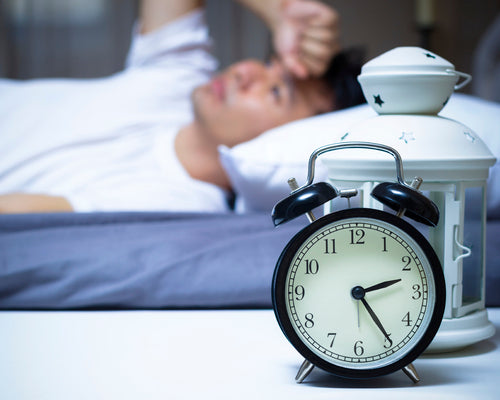If you’ve ever tossed in turned during the night and spent the next day feeling the effects of sleep deprivation, then you’re not alone. A U.S. study estimates that 25% of Americans suffer from acute insomnia—the difficulty falling asleep or staying asleep—each year, and the Philippine numbers can’t be far behind. But not to worry: The same study notes that 75% of those get over it and don’t develop chronic insomnia.
Still, that provides little comfort when you’re up for hours again, wondering how you can possibly sleep better. The good news is there are some concrete sleeping tips you can follow to help send you off to dreamland.
Causes of Insomnia
As with any disorder, it pays to figure out what’s causing it to begin with. The U.S. National Sleep Foundation gives a rundown of the possible causes of insomnia:
Medical. Sometimes the issue is a medical condition, whether it’s the condition itself that causes insomnia, or the symptoms are so uncomfortable that they keep you awake. These conditions include those that make it hard for you to breathe, such as nasal allergies, asthma, or sleep apnea; and those that cause pain, such as arthritis or a sore lower back. Some medications, like those taken for high blood pressure as well as birth control, can also cause insomnia.
Depression. In some ways, insomnia and depression can be a vicious cycle: A psychiatric condition can make it harder to sleep, while a lack of sleep can trigger or worsen depression. Fortunately, both are treatable regardless of which came first, according to the National Sleep Foundation.
Anxiety. Got a big work presentation tomorrow? Worried about paying for your kid’s tuition? Still bothered by a fight that you had with your spouse? These are all things that can keep you up at night. After all, there’s nothing to occupy you while you’re in bed—no work or responsibilities—and you’re just left with your thoughts.
Lifestyle. Certain habits and behaviors can keep you from falling asleep. Maybe you work in different shifts, which disrupts your sleep patterns. Or maybe you take naps in the afternoon. Or maybe you take your home work with you and work in bed while the rest of the household is asleep.
Sleeping Tips
If you’d like to learn how to sleep better, then heed the following tips:
1. Have a regular sleep routine. Sleep and wake up at the same time every day, no matter what your schedule. While the occasional night out and late morning in shouldn’t disrupt your sleep patterns so much, making this a weekly habit can interfere with your sleep.
2. Create an environment that’s good for sleep. Block out any sources of light by using heavy drapes and banishing your phone and other glowing gadgets like a digital clock from your room. You can also wear a sleep mask. Make sure the room is at a comfortable temperature and eliminate any noise. You might want to play music to help you sleep or even play other more relaxing sounds—nature sounds, white noise—to block out other more distracting sounds.
3. Have something warm before bed. Try a warm cup of milk before turning in. Milk contains an amino acid called tryptophan, which promotes the production of serotonin, the happy hormone that’s a natural sedative. Carbohydrates can help speed up the transmission of the hormone to your brain so add some honey to your milk.
Not a fan of dairy? Make yourself a cup of tea. Chamomile is an age-old sleep aid.
4. Meditate. According to the National Sleep Foundation, meditation has been shown to increase sleep time, improve sleep quality, and make it easier to fall and stay asleep. A study published in JAMA Internal Medicine found that subjects who learned meditation and mindfulness techniques reported less insomnia and fatigue than those who learned basic sleep hygiene.
5. Try a sleep aid. Valerian root has been linked to better sleep quality for insomnia patients. You can also try a melatonin supplement—the hormone regulates the sleep-wake cycle. Talk to your doctor before taking any supplements, even if they’re natural, as some may have side effects or may interact with other medications you may be taking.
sources:
https://www.sleepfoundation.org/insomnia/what-insomnia
https://www.sleepfoundation.org/insomnia/what-causes-insomnia
https://www.sciencedaily.com/releases/2018/06/180605154114.htm
https://www.sleephealthfoundation.org.au/pdfs/Insomnia.pdf





